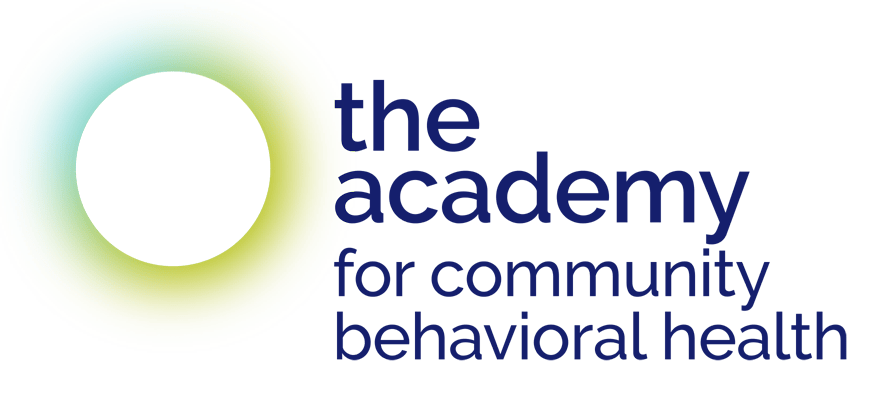All Scheduled Dates
May 6, 1:00-4:00PM (Part I)
May 7, 1:00-4:00PM (Part II)
Course Type
Multi-Session
Course Length
6 hours
QUESTIONS?
Email [email protected]
ATTENDANCE POLICY
This 6-hour course takes place between May 6-7, 2025. We expect participants to attend and engage in both sessions (Part I and Part II).
Participants who attend both sessions will receive a certificate of completion. Those who miss no more than 30 minutes of instructional time may receive a certificate of completion, at the Academy's discretion.
Let's Talk About Drugs
A Two-Part Course
DESCRIPTION
This two-part course integrates theoretical frameworks with practical communication skills to consider how we can bring a more holistic approach to our work with people who use drugs. The first session introduces Dr. Zinberg's "Drug, Set, Setting" framework to develop a multidimensional understanding of drug use, examining how pharmacological properties, individual characteristics, and societal factors interact.
Building on this foundation, Session 2 introduces Motivational Interviewing techniques that you can use to help community members develop their own insight, grow confidence in their capacity to make changes, and honor their autonomy—core elements of self-determination theory and facilitating meaningful change.
We will move beyond traditional deficit-focused approaches to develop a more nuanced, person-centered practice that recognizes the complex interplay between drugs, individuals, and their social contexts. Through didactic learning, sharing knowledge and experience, and skill-building exercises, this course asks us each how we might bring more effective, compassionate, and empowering support for people who use drugs.
COURSE OBJECTIVES
Participants will be able to:
- Distinguish between the physical effects of major drug classes, while analyzing how individual characteristics and social contexts influence drug use experiences and risks
- Demonstrate Motivational Interviewing techniques—including reflective listening, open questions, and autonomy support—to foster conditions that promote self-directed change in people who use drugs
- Assess your own assumptions about drug use and recovery in a supportive learning environment, reconsidering your professional stance through newly acquired frameworks including “Drug, Set, Setting” and Self-Determination Theory (SDT)
- Apply more effective, respectful, and person-centered interventions in your professional role
COURSE OUTLINE
Description
In session 1 of 2, we will attempt a more holistic approach to understanding drug use by examining the complex interplay between drugs, individuals, and their environments. Using Dr. Zinberg's influential "Drug, Set, Setting" framework, learners will develop an integrated understanding of how drugs affect people differently based on multiple factors. Moving beyond simplistic views of drug use, this workshop emphasizes how the pharmacological properties of drugs (Drug) interact with an individual's mindset and personal characteristics (Set) within different environments (Setting).
This multidimensional approach encourages learners to consider how social context, cultural factors, and policy decisions collectively influence drug use experiences and outcomes. Together, we will use this framework to acknowledge how policies, treatment approaches, and narratives around drug use have both reflected and exacerbated social and economic injustices, leading to disproportionate harms in particular communities.
Objectives
Participants will be able to:
- Demonstrate understanding of the physical effects of the three major drug classes
- Analyze how individual factors (physiological, psychological, etc) influence drug effects and risk profiles
- Accurately assess risks of different drugs and usage levels
- Analyze how social factors, cultural norms, and drug policies shape the lived experiences of people who use drugs
What to Expect
This 3-hour session will be a mix of didactic teaching, group information sharing, and collaborative activity. Participants will be asked to share their knowledge and experience as we build out the theoretical framework together. This collaborative activity will take place verbally and via chat, in both small and large groups. Participants will be encouraged to have cameras on, share actively both verbally and in chat, and participate in small and large group activities.
Description
Building on our exploration of drug use through the Drug, Set, Setting framework, this workshop focuses on practical communication techniques that foster meaningful connections with people who use drugs. Guided by self-determination theory, we'll examine and practice various communication tools designed to help the people we serve feel understood, confident, and autonomous—the three key psychological needs for sustainable behavior change.
Participants will learn evidence-based counseling skills to:
- Validate lived experiences while building genuine rapport
- Strengthen individuals' confidence in their capacity for change
- Support autonomy and self-directed decision-making
Through interactive exercises and case discussions, this workshop provides concrete strategies to enhance your communication toolkit and better support those navigating challenges related to drug use on their own terms.
Objectives
Participants will be able to:
- Effectively demonstrate 3 core Motivational Interviewing (MI) communication techniques (reflections, open questions, and affirmations) to support people who use drugs as they consider change
- Formulate autonomy-supporting statements that recognize client choice and self-direction in conversations about drug use
- Apply MI-based strategies to navigate challenging conversations in ways that enhance core self-determination theory principles of understanding, confidence and autonomy
What to Expect
This 3- hour session will be highly experiential as we practice a variety of communication techniques in both small and large groups. You will be asked to participate on-camera, to try out several new skills both verbally (mics on) and in the chat, and reflect on your experiences with each other.
WHAT TO EXPECT
All participants in this course bring a wealth of knowledge and experience from their work and their wider lives (even if you don’t work in traditional substance use services). While the facilitator will share information, participants will be asked to actively bring their experience into the frameworks that are shared.
Additionally, participants will be asked to “try on” several MI-based communication skills and reflect on how they might be used to enhance conversations with people who use drugs. Participants will also be asked to engage in self-reflection about beliefs and biases we each hold, how they might impact our work, and how the process of examining these beliefs may transform our work. Periods of self-reflection will be completed by periods of mindful sharing in the group.
Participants will be encouraged to have cameras on, to share actively both verbally and in chat, and to participate in small and large group activities.
ELIGIBILITY
This course is open to staff of any non-profit social service or behavioral health care provider delivering services in New York City, including: community-based organizations, government agencies, and more. It is designed for helping professionals who work with people who use drugs, regardless of the type of program or organization you work in.
It is also open to harm reduction volunteers, mutual aid groups, and others who provide care to people who use drugs in New York City on a volunteer basis.
This course is for those who seek to build a more compassionate understanding of drug use and develop skills for more effective conversations, recognizing the complexity of drugs and the people who use them.
HOW TO APPLY
Please apply here. Applications will close on 4/18/25.
INSTRUCTORS

